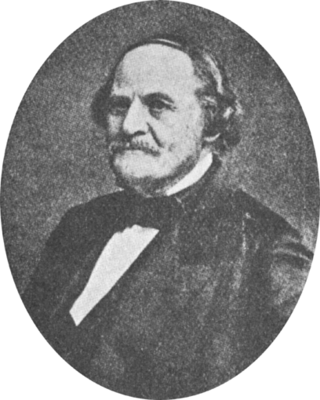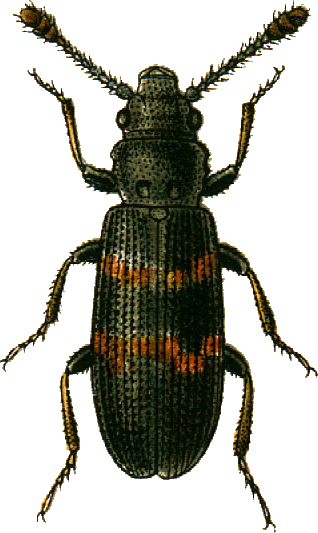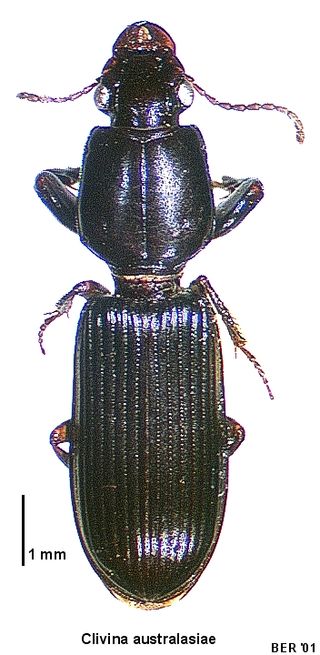
Carl Henrik Boheman was a Swedish entomologist.

Aegista vulgivaga is a species of air-breathing land snail, a terrestrial pulmonate gastropod mollusk in the family Camaenidae. Snails in this species create and use love darts as part of their mating behavior. The species can host sporocysts of Dicrocoelium

Caenocara is a genus of beetles in the family Ptinidae. Members of this genus are sometimes called puffball beetles.

Clivina is a genus of ground beetle native to the Palearctic, the Nearctic, the Near East and North Africa. There are more than 600 described species in Clivina.

Phloeostichidae is a family of beetles in the superfamily Cucujoidea. They are typically found under the bark of dead trees. Larvae have been found to consume plant tissue and some fungi, while the adults appear to be exclusively fungivores. The family contains four extant genera, Phloeostichus is native to the Palearctic, Rhopalobrachium is native to central-southern South America and eastern Australia, Hymaea is native to southeastern Australia, and Bunyastichus is found in Tasmania.

Acmaeodera is a genus of beetles in the family Buprestidae, a group of metallic wood-boring beetles favored by insect collectors. Whereas most beetles including most buprestids fly with their elytra held out and vibrating their hindwings to give lift and thrust, Acmaedodera, however, fly with their hind wings only — the elytra are fused down the center and form a shield over the insect's abdomen, even during flight. This fact, combined with the banding across the abdomen which is common in this family, gives many of them a distinct wasp-like appearance when in flight. Several are therefore considered hymenopteran mimics.

Amblystomus is a genus in the beetle family Carabidae. Its species are found mainly in Africa, Asia, Europe, and Australia.
Athrostictus is a genus of ground beetles in the family Carabidae.

Abacetus is a genus of beetles in the family Carabidae, distributed across Africa, Asia and Australia, with a single European species. It contains the following species:
Blennidus insularis is a species of ground beetle in the subfamily Pterostichinae. It was described by Boheman in 1858.

Sphenophorus is a genus of weevils, often known as billbugs, in the family Curculionidae, and tribe Sphenophorini. Eleven species of billbugs infest managed turfgrass in North America.

Aspidimorpha is a large Old World genus of beetles belonging to the family Chrysomelidae and tribe Aspidimorphini. The genus name is frequently misspelled as "Aspidomorpha", due to an unjustified spelling change in 1848.

Clivina australasiae is a species of ground beetle in the subfamily Scaritinae. It was described by Boheman in 1858.
Aulacothorax is a genus of flea beetles in the family Chrysomelidae. There are currently 51 described species in Aulacothorax found worldwide, 40 of which are found in the Indomalayan realm.

Stenotarsus is a genus of handsome fungus beetles in the family Endomychidae. There are more than 50 described species in Stenotarsus.
Jules Antoine Adolphe Henri Putzeys was a Belgian magistrate and an entomologist who took a special interest in the beetles belonging to the family Carabidae.
Platypezina is a genus of flat-footed flies in the family Platypezidae.

Parisopalpus nigronotatus, known by its common name, the spotted lax beetle, is a species of false blister beetles. It was first identified by Carl Henrik Boheman in 1858, under the name Nacerdes nigronotata. Native to eastern Australia, the species was introduced to New Zealand in 1931.












